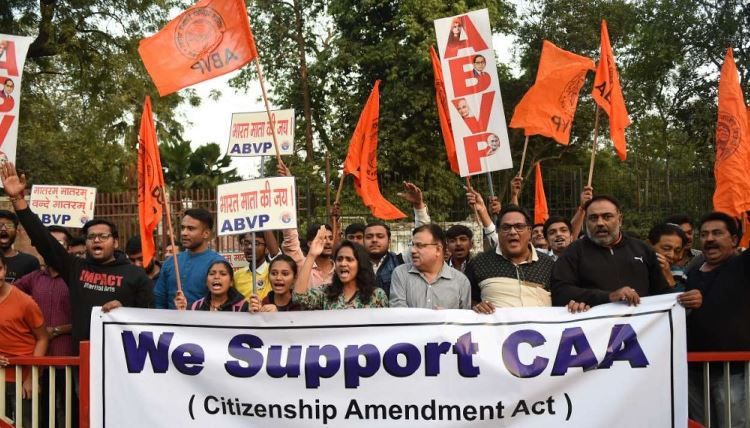MUMBAI: The government should not hesitate to provide refuge to those who can be provided shelter.
In December 2019, the Indian government under the leadership of Narendra Modi passed the Citizenship Amendment Bill in both Houses of Parliament. The Act took cognizance of the oppression of minorities in the neighborhood and permitted them to obtain Indian citizenship. Members of the six religious community namely Hindu, Sikh, Buddhist, Jain, Parsi and Christian will only have to live or work in India for six years to be eligible for citizenship by naturalization. By easing the citizenship process for those who migrated due to persecution, the Modi government has acted to provide a relief to communities facing injustice in Islamic regimes in our backyard.
Ever since Independence, the proportion of Hindus in Pakistan have declined. Hindus have faced discrimination at every level and succumbed to the tyranny of the radicalized civil society. While a lot is written about the shrinking population of Hindus in Pakistan, Bangladesh (i.e East Pakistan till 1971) isn’t often mentioned. The Hindu population in Bangladesh declined from 28% in 1940 to 8.96% in 2011. The Indian role in the Bangladesh war didn’t help the Hindu cause in mitigating the decline. Despite Delhi enjoying a friendly diplomatic relationship with Dhaka, Hindus declined a shocking 33% from 1974 to 2011. It demonstrates that a Hindu majority India can’t help the Hindu population in the neighbourhood even after participating in a liberation war. This also proves that the attitude of the ruling establishment towards Hindus doesn’t really translate into the safety of Hindus. If a friendly Bangladesh and unfriendly Pakistan are mistreating Hindus, the oldest religion in the world doesn’t have any refuge but its home country—India. The Modi government’s move of passing the CAA is the realization that India needs to act like a safe haven for minorities, especially for Indian religions like Hinduism, Sikhism, Buddhism and Jainism.
One factor which determines the safety of the minorities is political stability. Historically, the minorities have faced the worst times when the political situation is volatile. The bloodiest genocide of Hindus was during
There are two steps that the Modi government might be required to take to prevent a mass genocide of minorities in Bangladesh. One is the long term agenda of finding and deporting illegal Bangladeshis from Indian soil. Secondly, the government should not hesitate in providing refuge to those minorities who can be provided shelter. The provisions of CAA already allow the Hindu community an option to consider migrating to India. However, this may unsettle the Muslim dominated border areas of West Bengal and Assam. The government should use force if necessary to ensure that Hindus fleeing Bangladesh are sheltered. Unless a corresponding purge of illegal Bangladeshis happens, it won’t be practical for the country to absorb the huge influx of Bangladeshi Hindus. Even though Hindus are just 8% of the Bangladeshi population today, the absolute numbers are big enough to cause chaos in the border villages. A population exchange where Bangladeshis are forcibly deported and those facing violence are gently assimilated is the need of the hour. Fortunately, the vision of Modi government had already foreseen such eventualities and an act that can ensure the transition is already in place.
The Bangladesh violence is the true test of the practical application of CAA and NRC. The world is looking at India and expecting a decisive action on the Bangladesh violence. Any goof-up will prove the nay-sayers right on the CAA-NRC debate. Any success in relocating the struggling minorities will silence the international media and other critics of the citizenship law. A Sanskrit Shloka goes “धर्मो रक्षित रक्िषतः (Dharmo Rakshati Rakshitah)” meaning “Dharma protects the protector”. The Indian government will have to step up and protect dharma in the neighbourhood so that it can protect the values it holds dear. We are confident that PM Narendra Modi will act at the right time to protect Indian strategic interests and civilizational goal.
Shweta Shalini is a Bhartiya Janta Party spokesperson, TEDx speaker, blogger and a thought leader.

